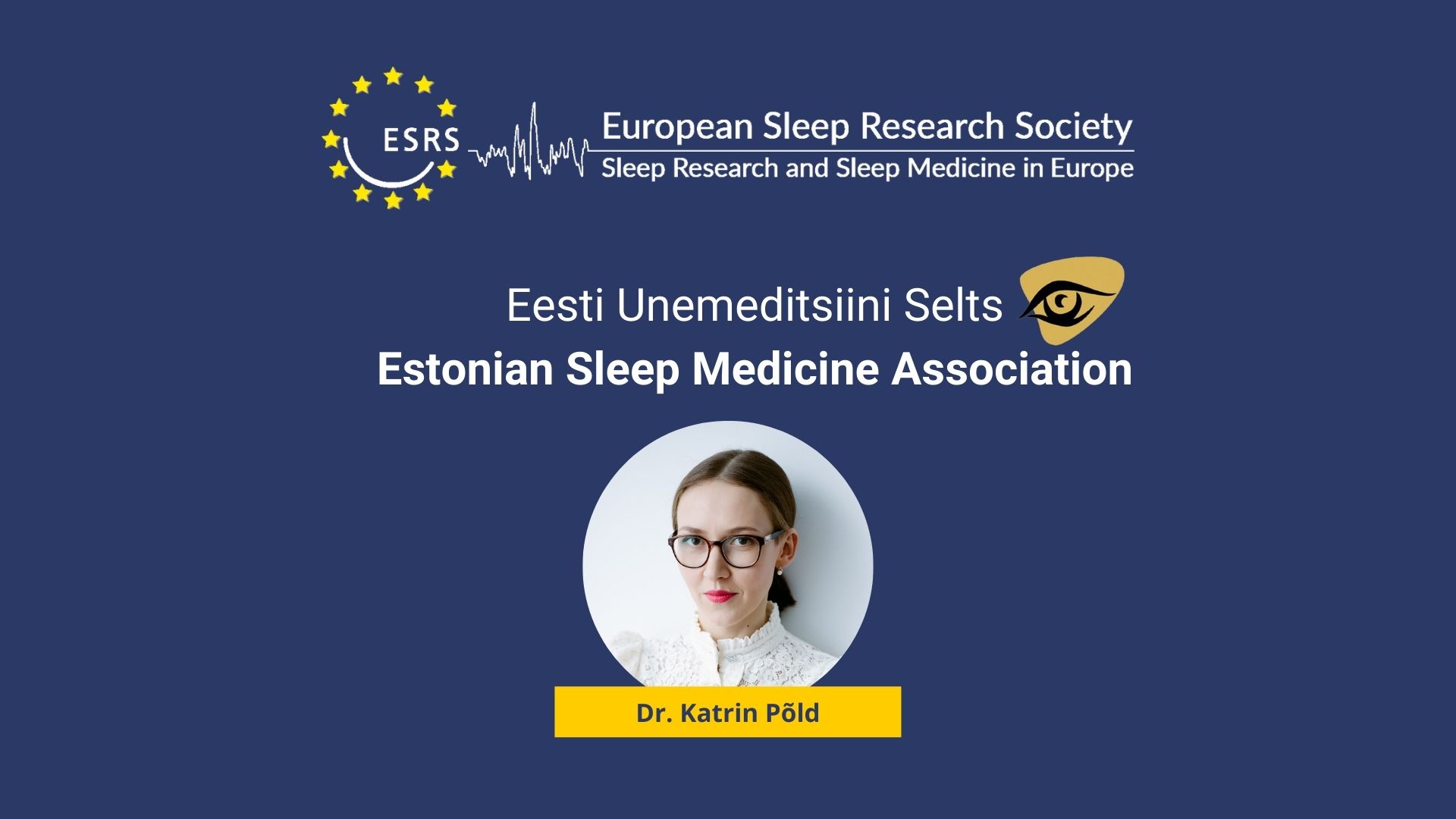Updates from the Estonian Sleep Medicine Association
As a part of our ‘NSS Interview’ series, we spoke with the recently elected President of the Estonian Sleep Medicine Association (ESMA) Dr. Katrin Põld, where she gave us highlights on the various initiatives and activities of the association, the current state of sleep medicine accreditation, sleep medicine in academia and the challenges in diagnosis and treatment of sleep disorders.
Activities & Initiatives
Founded in 2005, ESMA has always been active in sleep medicine. They were the hosts of the 22nd ESRS Congress in Tallinn (2014), and have more recently hosted several other regional conferences and meetings for the Nordic and Baltic states.
They are also closely coordinating with colleagues at Reykjavik University on the Sleep Revolution project and have started to work on national guidelines regarding sleep disorders treatment.
Sleep Medicine Accreditation
The ESMA is looking into establishing their own accreditation procedure, but at the moment, they rely on the ESRS Sleep Medicine Examination for this.
Sleep Medicine in Academia
Sleep medicine is not a recognized sub-specialty; therefore, practitioners receive only a few hours of sleep medicine education, which primarily focuses on insomnia. With only one medical university in the country, and with lecturers who are also active practicing physicians, their ability to expand sleep medicine in academia is quite limited.
In order to fill this gap, there have been discussions about establishing a sleep medicine course as opposed to how it now administered as an ‘optional’ or extracurricular course.
Dr. Põld noted that this is disheartening especially since sleep disorders pose a real problem to Estonians and people in the region, and is a common cause for patient visits to doctors of all sub-specialties.
Diagnosing Sleep Disorders
As many might be able to attest, most patients come with very non-specific complaints, but rely on physicians to be able to give a quick diagnosis and treatment regimen, which is rarely the case. Dr. Põld gave some insight into the useful application of their guidelines, and what the most common sleep disorders (and complaints) are.
Additionally, due to funding restrictions, limited availability of studies, some patients with more complex problems tend to go undiagnosed and untreated (or undertreated) for a long time before a correct diagnosis can be established, and correct treatment can be started.
Dr. Põld stressed the importance not only using the ESMA to educate doctors on the importance of sleep and sleep disorders, but also the general public. It is also important is to start a dialogue with universities and policymakers, for them to understand the societal burden and cost of a population suffering from sleep disorders.
For more details on the interview with Dr. Põld, watch the full interview here:
Reminders
Sleep Europe 2022 Abstract Submission – Last Chance!
With only a few days left before we close the abstract submission for the 26th Congress of the ESRS, we urge you to use the weekend to finalise your drafts or start the process today! All accepted abstracts will be published in the Journal of Sleep Research as well as in the interactive programme online. This will allow your research findings to be seen by professionals around the globe.
Application Deadline: 12 April 2022, 23:59 CET
More details here.
Sleep Europe 2026 Bid Manual Available
Application Deadline: 29 April 2022
More details here.
Research Grants Available
The ESRS has recently launched a grant in support of Ukrainians leaving Ukraine due to the conflict. This research grant is for a 3-month study stay aimed at sleep researchers, investigators, scientists and clinicians.
Applications will be accepted until 30-April 2022.
More details here.
The ESRS supported by our corporate member Bioprojet, is offering a 10.000 € grant to support a young physician working in the field of daytime sleepiness. The grant should support an ongoing or new research project and should be completed within three years.
Application Deadline: 24 June 2022
More details here.
Recent publications from ESRS members
- Riontino & Cavallero (2022). Impact of sleep deprivation on attentional networks: disentangling orienting components. Brain Cogn.
- Bettega et al. (2022). Application of Inverse-Probability-of-Treatment Weighting to Estimate the Effect of Daytime Sleepiness in Obstructive sleep apnea patients. Ann Am Thorac Soc.
- Ribeiro et al. (2022). Cognition, emotion, and Obstructive Sleep Apnoea Syndrome before and after severe weight loss treatment. Sleep Sci.
- Rösler et al. (2022). Combining cardiac monitoring with actigraphy aids nocturnal arousal detection during ambulatory sleep assessment in insomnia. Sleep.
- Menghi et al. (2022). Predictors of hyperkinetic seizures. Epilepsy Behav.
- Riemann (2022). Sleep in childhood and adolescence, insomnia, neurological sleep disorders and much more! J Sleep Res.
- Giacomini et al. (2022). On the role of REM sleep microstructure in suppressing interictal spikes in Electrical Status Epilepticus during Sleep. Clin Neurophysiol.
- Borragán et al. (2022). Impaired Sequential but Preserved Motor Memory Consolidation in Multiple Sclerosis Disease. Neuroscience.
- Kazemeini et al. (2022). Critical closing pressure of the pharyngeal airway during routine drug-induced sleep endoscopy: feasibility and protocol. J Appl Physiol (1985).
- Berger et al. (2022). Association between nocturnal heart rate variability and incident cardiovascular disease events: The HypnoLaus population-based study. Heart Rhythm.
- Masa et al. (2022). Risk factors associated with pulmonary hypertension in obesity hypoventilation syndrome. J Clin Sleep Med.
- Piilgaard et al. (2022). Sex-related differences within sleep–wake dynamics, cataplexy, and EEG fast-delta power in a narcolepsy mouse model. Sleep.




